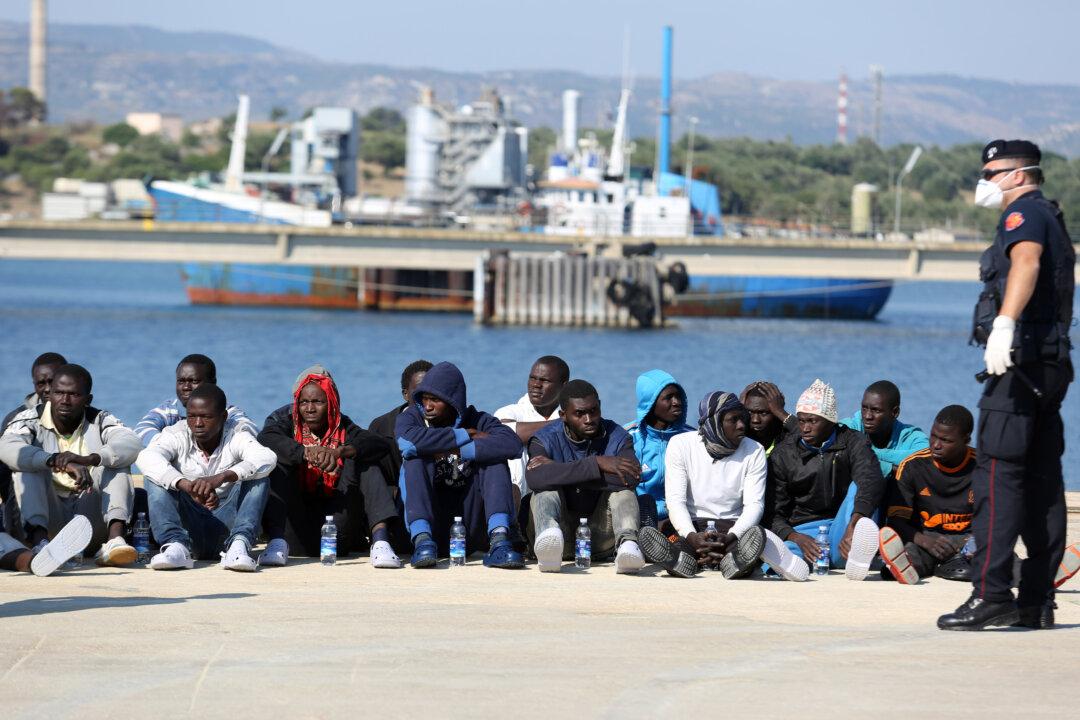BRUSSELS— The European Union decided Friday to share 40,000 of the refugees landing in Italy and Greece but foot-dragging and verbal sniping over the move exposed deep divisions about how to deal with Europe’s massive migrant influx.
While the size of the challenge is daunting, the EU’s response has been underwhelming. More than 114,000 migrants fleeing wars or poverty have been plucked from the Mediterranean so far this year as they try to cross in unseaworthy smugglers’ boats. Some 2,600 have died or are missing along the route, according to the International Organization for Migration.
“It is — to tell the disturbing truth — a very modest effort,” European Commission President Jean-Claude Juncker said Friday after EU leaders agreed at a summit to decide by late July on how to distribute the refugees.
Italian Prime Minister Matteo Renzi agreed.
“It’s not a big number,” he said. “For Italy it’s a small help, but there’s still a lot of work to do.”
Greece and Italy have been swamped by the arrivals, while Hungary and Bulgaria are also under pressure from thousands of migrants traveling over land. Things are likely to get worse amid the summer high season for migrant crossings.
Radical action is being taken around Europe in response. Hungary has pledged to build a fence to keep out the torrent of migrants crossing its border with Serbia. France and Italy have been at loggerheads over the movement of migrants along their common border. Police have dismantled migrant camps in northern France, from where people are hoping to cross into Britain.
Greece and Italy have been accused of not properly screening arrivals and allowing them to move deeper into the 28-nation EU.
In an effort to ease some of their burden, Juncker’s team has tried to force northern EU countries to share the burden, but any notion of mandatory migrant quotas for each nation was rejected at the summit.
Belgian Prime Minister Charles Michel called Friday’s decision “saddening and disappointing.”
“There is a lack of ambition, a lack of will,” he said. “It wasn’t a sense of solidarity that dominated around that table.”
With some 60 million refugees in the world, this effort from a wealthy, half-a-billion-strong bloc appears paltry when countries like Lebanon, Jordan and Turkey are hosting hundreds of thousands of people displaced by conflict.
Even the decision to share 40,000 Syrians and Eritreans arriving over the next two years — and a separate move to resettle 20,000 refugees from outside Europe — only came after an emotional appeal from Italy.
“If you don’t agree with 40,000 refugees you don’t deserve to be called Europe,” Renzi was quoted as saying to the leaders as the debate dragged into the night.
“If this is your idea of Europe, you can keep it. Either there is solidarity or don’t waste our time,” he said, according to an EU diplomat, who asked not to be identified because the discussions were not public.
The emergency plan was launched in response to the deaths of hundreds of migrants in the Mediterranean earlier this year. At a hastily organized summit, ships, planes and other equipment were pledged to help rescue those trying to come. But as the media spotlight faded, so has the EU’s commitment to its partners.
Ultimately, around a dozen EU nations oppose the obligatory quota plan. A further 12 that would support it want the method for sharing out the refugees reassessed.
Humanitarian group Doctors Without Borders, which staffs reception centers in Italy and Greece and works aboard three ships in the Mediterranean looking for refugees, said the EU still has not fully grasped the challenge it faces, especially with the war in Syria dragging on.
“Even without compulsory relocation, reception capacities and services for people arriving in Greece and Italy will urgently need to be improved to deal with people humanely,” said the group’s migration expert, Aurelie Ponthieu.





